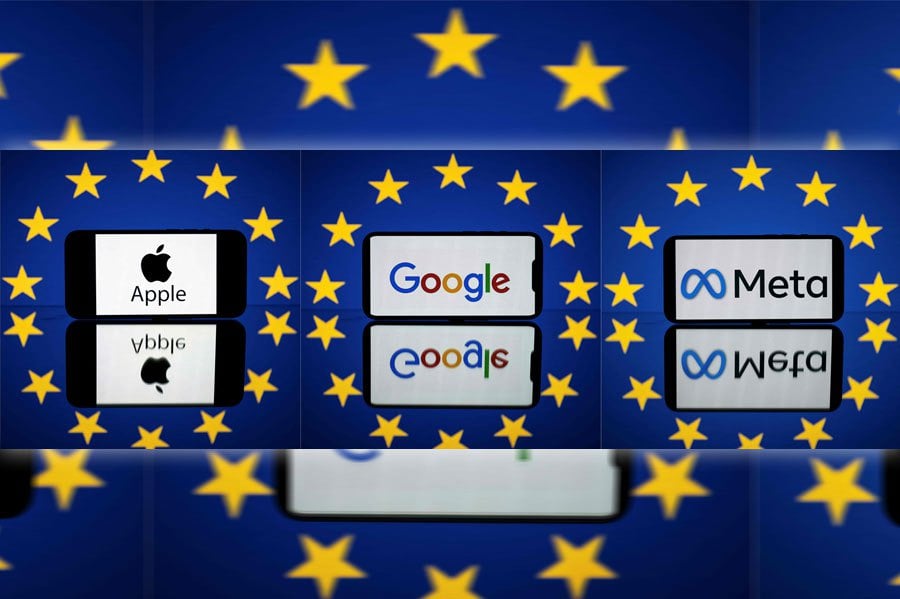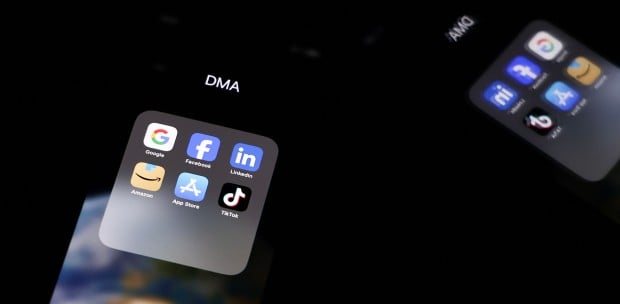Big Tech is in trouble. Anti-trust busters in the European Union and the United States are on a break-up mission against the tech titans, alleging aggressive anti-competitive practices. Would it be Standard Oil all over again, as the US Supreme Court broke the company into 34 entities? Or AT&T, a more recent example? Many — the tech titans' competitors and those who use their platforms and applications — are surely hoping so. These see the tech giants — commonly said to be Google, Amazon, Facebook (now Meta) and Apple — making the market and walling themselves in it. Compelled by complaints, anti-trust regulators in the EU and the US are beginning to act.
Start with the EU. Just weeks after the Digital Markets Act (DMA), the European bloc's landmark legislation aimed at policing customer choice, the EU began investigating Apple, Alphabet (Google's parent company) and Meta for potential breaches of the act. If found guilty, the three tech titans may face gigantic fines. The DMA lists fines of up to 10 per cent of turnover, rising to 20 per cent if infringements are repeated. According to British newspaper The Guardian, Apple's revenue last year was US$383 billion, while Alphabet's was US$307 billion and Meta's US$134 billion.
The investigations follow the European Commission designating six "gatekeepers" — Alphabet, Amazon, Apple, ByteDance, Meta and Microsoft — under the DMA on Sept 6 last year. Such a designation requires the named companies to put in place measures to ensure that the market is a level playing field. The DMA investigation into the three companies means the European Commission suspects them to have failed in taking the required measures under the act. The commission has a year to complete its investigation, but we will hear more between now and then. One of the "more" is a potential break-up order. The Reuters news agency quotes European Parliament lawmaker Andreas Schwab, who was involved in the drafting of the DMA, thus: "If they don't comply with the DMA, you can imagine what Parliament will ask for. Break-ups."
The US, too, is catching the EU's March fever. Last Thursday, the US Department of Justice (DoJ) joined by 16 state government and district attorneys, filed a wide-ranging anti-trust case against Apple in the New Jersey District Court, alleging "monopolisation or attempted monopolisation of smartphone markets", a violation of the country's Sherman Act. The US Supreme Court defines monopoly as "the power to control prices or exclude competition". In a press statement released on the same day, the DoJ said its lawsuit centres on allegations that Apple is using "its control over the iPhone to engage in a broad, sustained, and illegal course of conduct". The DoJ hasn't ruled out break-up as a remedy. But it is not going to be easy. Apple has promised a good fight, saying in a public statement that "the lawsuit threatens who we are and the principles that set Apple products apart in fiercely competitive markets." We are not so sure about the "fiercely competitive markets" bit, but it is right about the lawsuit threatening "who we are". Should the DoJ win, Apple would be, ironically, the part-bitten apple, which is its logo. In the beginning is the end, as T.S. Eliot would have put it.





